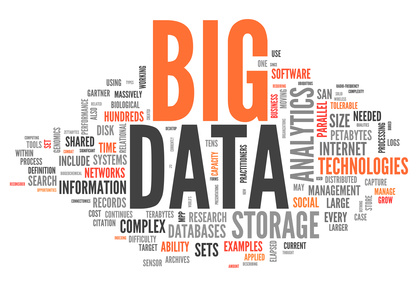Note: An edited version of this piece was published in IQ by Intel on October 1, 2014 as "Are You Data Center Dependant?"
Last month a 6.1 magnitude earthquake rocked Napa reminding California, home to the world’s leading data-reliant organizations, of Mother Nature’s destructive potential.
It was a stark warning of the damage that can be caused by forces outside our control, especially to the data centers we rely on. Currently there are over 500,000 critical facilities supporting our lives. The strain on them will only increase as the Internet of Things (IoT) drives the rapid proliferation of personal, community and corporate digital technology.
Something has to change. We must become more informed about the importance of data centers in our lives. The press has no trouble writing about them, but for all the wrong reasons. The majority of column inches focus on how dirty and polluting they are, when, in reality, no other industry is doing more to clean up its act through regulation and energy efficiency.
Today, every part of our lives is dependent on data centers. Our daily social media interactions, the transport infrastructure we depend on, the accessibility and management of personal and corporate finance, and the provision of our power and utilities. Everyone should understand how critical these facilities are to our daily activities.
Data Center Dependence
The financial sector is all too familiar with this challenge. IT issues and data center outages cost banks billions of dollars in lost revenue and fines every year. This impacts investor confidence and results in short-term sector instability but it is the public that has to live with the overall fallout.
Those on vacation are stranded without money, salaries cannot be paid and mortgage approvals falter, preventing thousands from moving home. Our world grinds to a halt, as explored in Intel’s own Food. Water. Datacenter. spoof video.
The truth is less amusing for those bearing the brunt of outages. HSBC, Bank of America, RBS and Natwest have all experienced recent IT failures at the expense of their customers and bottom lines.
Disruption like theirs highlights just how fragile the global economy is and how the most mundane activities are completely driven by data.
Moving People By The Billions
 The water and power distributed to your home is routed by data centers. Traffic lights, train signals, bus routes, even the live traffic information delivered to your car, are reliant on data center facilities.
The water and power distributed to your home is routed by data centers. Traffic lights, train signals, bus routes, even the live traffic information delivered to your car, are reliant on data center facilities.
Even Google with its ambitious automated car vision should be concerned. Its new driverless cars generate over 1GB a second through advanced image collection and processing technologies. Multiply this by how many cars Google expects to manufacture and the mountain of data becomes unfathomable. If the data center does go down, your car is nothing more than somewhere to stay dry while you wait for a bus!
The same pressures apply to airlines. Planes only earn money when in the air and if a carrier is already posting massive annual losses of $2.8 billion, mass delays only add to the financial strain. Qantas experienced this when it grounded 400 flights due to check-in failure. It ruined thousands of vacations because its data center did not have a contingency plan for the leap-second bug.
Closer to home is your daily shopping routine. If Amazon has issues during the festive period it isn’t just your family’s Christmas that is ruined, but the company’s bottom line as well. Last year it took the company just 49 minutes of downtime to lose $4 million in sales, while a similar half-hour data center incident saw $65,000 hemorrhaged every minute. This is not a financially sustainable business strategy, nor does it win customer loyalty.
The New Age of Terror
Emerging technologies highlight how exposed the modern world is. In the age of terror, data centers have replaced power stations and airports as strategic targets. Deliberate outages already happen regularly. The whole of Syria was taken offline in 2013 when the government blocked external communications services. Iraq, North Korea and Sudan saw the same treatment at the hands of insurgents and their oppressive regimes.
Data is no longer a commodity but a priceless asset upholding national security. Even when intentions are not sinister, events out of our control are unavoidable. Level 3 Communications famously cursed squirrels in 2011 for chewing cables, a pest that was responsible for almost 20% of outages. The undersea cables that carry data traffic between continents are even more susceptible; a regular target for hungry sharks and clumsy ships.
Most major governments and businesses are waking up to data security. The most famous example is Visa’s Operations Center East with an address ‘somewhere on the Eastern seaboard’. A genuine fortress with 130 former military personnel guarding its grounds, it has a moat and hydraulic bollards that can be raised to stop a car traveling at 50MPH.
Putting Our Lives In Digital Hands
The data center is now omnipresent and its significance in our personal and professional lives cannot be overstated. From a misplaced server holding financial data to the loss of Netflix on a Sunday afternoon, data centers are now symbiotic entities we cannot separate ourselves from.
They will only increase in importance as the last non-digital services are disrupted by technology. Gartner predicts more than $143 billion will be spent on data centers globally this year. Given their monumental importance, this seems like money well spent.



